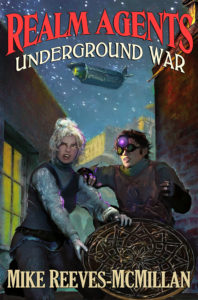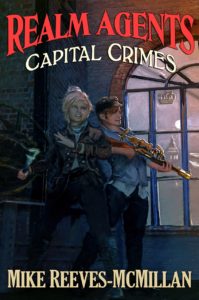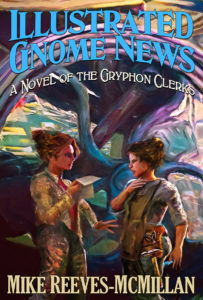At the end of my previous post, I recommended Jack M. Bickham’s book Scene and Structure to anyone who wants to write in what we might call the “heroic protagonist” mode. In my review of that book on Goodreads, I mention that the closer your story is to being an action thriller, the more applicable his advice will be.
I say this because different modes and genres of fiction deal differently with character agency. I think it’s worthwhile taking a post to think that over, since if you’re not writing the kind of story where your main character shows a lot of agency – a “heroic protagonist” story – a lot of the failure modes I talked about in the previous post are not as applicable. Also, this is a lead-in to the next post, in which I’ll consider how a diversity of voices changes how agency is represented in fiction.
First, let’s talk “literary” vs “genre”. This is a pairing that has some problems, not least that there is a genre often referred to as “literary” as well as a style that is “literary”, and it can also be an evaluative term. When I think of literary-as-genre, I think of a set of expectations and conventions, like the ones we have in other genres, and one of the characteristics that stands out to me is a difference in typical levels of protagonism between a literary-genre story and a heroic-protagonist story.
To generalise wildly, most literary-genre stories I have read – even the ones with fantastical elements – feature main characters who are not protagonists (that is, they are not struggling towards a goal, which is what “protagonist” means). Instead, their typical arc is through helplessness to hopelessness. Their relationships fall apart, their careers are revealed as hollow, they become alienated from society and its expectations, and they do little or nothing to remedy any of this. It’s as if, in Literary World, the truth is that everyone in the world is rather pathetic and doomed to unhappiness, and the story that gets told over and over is of someone realising that truth, or (if they never consciously acknowledge it) at least becoming victims of that truth.
The literary genre is a genre often seen as belonging to the elites, and other genres are seen as “popular”, of the masses. I invite you to reflect on the implications of the literature of the elites being about the hollowness of all striving, while the literature of the masses perpetuates a narrative of personal choice and agency.
Having been, no doubt, grossly unfair to many writers who I haven’t read (since I avoid the literary genre exactly because so much of it is so passive and hopeless), let’s move on to genres where I can speak from a much wider sample of texts: science fiction and fantasy (SFF). First, though, let’s take a detour into romance.
There was a brief period when I thought about writing romance; I still need to write the post about why I decided not to, but part of it involved the very strong genre conventions, some of which I didn’t think I could bind myself to. Although romance, like any genre of its vast size and popularity, has a good deal of diversity in it these days, there are still some powerful expectations. One is the Happily Ever After (so expected that it’s been abbreviated as HEA); whatever the couple’s struggles along the way, you can be confident going into a romance that they are going to end up together, basically from the moment of the Meet Cute, however unattractive either or both may seem as people and however poorly suited they appear. (And however much our real-life experience may suggest that many relationships do not, in fact, work out; though there is a nod to this in the HFN ending, Happy For Now.)
This fatedness reminds me of the Hero’s Journey. Going into any heroic story that we have no reason to suspect is a tragedy, we carry the expectation that right will triumph, that the apparently unworthy, unskilled, and unsuitable person we’re introduced to early on will somehow become an epic hero, and the seemingly powerful villain will be defeated. These strong expectations impose certain limits on agency. No matter how much the romance hero/heroine or the heroic protagonist screws up, refuses to learn, treats people around them badly, falls back into old habits, or is just unpleasant and unworthy in general, the result is still inevitable: HEA in the romance, victory in the heroic story. In unskillful hands, it becomes a flaw.
In historical romance, we get an extra level of constraints. Consider the Regency romance, for example. The woman is generally expected to be innocent and virginal, and her powerful imperative is to marry well, because her economic security depends on her ability to attract a wealthy and powerful man, however repellant. The man is generally expected, with some exceptions, to be sexually experienced, and to have the wealth and power that the woman needs her mate to have, and the arrogance that goes along with it; but he, too, is constrained, if to a much lesser extent, by the powerful expectations and conventions of society. At worst, these conventions become a cattle-chute directing them to their fate; at best, they kick against them a little, but somehow manage to end up in a happy situation within their society. Their choices are severely constrained, and part of the joy of a good Regency romance for me is seeing how the characters still look for and find agency within, or even outside, those constraints.
Turning, then, to SFF, where I am much more widely read in both classic and contemporary texts than in the genres I’ve just been discussing with an assumed air of authority: within this sprawling and diverse landscape, we inevitably find differences in agency. Some SFF stories show us people with enhanced levels of agency – wizards, for example, or supers – and must then give them challenges that are equally heightened to prevent their victory from being too easy. But there are parts of SFF that don’t give their main characters much agency at all. Many (not all) hard SF stories, for example, give us characters who are little more than cameras, witnessing wonders that they are too small and insignificant to affect. Much of Arthur C. Clarke’s work falls into this category.
I haven’t read much Mythos, and hardly any horror, but my impression is that Mythos, like hard SF, often (not always) confronts the characters with something so vast and implacable that the idea that they might have agency is almost ridiculous. The smallness and insignificance of humanity is part of the point. Mythos is one of the ancestors of modern horror, and (again, this is an impression, since I don’t enjoy horror and have read very little), often in horror the characters struggle futilely against the monster that will inevitably kill them. Again, the helplessness is part of what the author is going for.
One aspect of agency, which I’ve touched on when discussing the Regency romance, is: how powerful is the system? How much intertia does society have against change? And are the characters on the side of change, or the side of preservation of the status quo?
In many traditional heroic or “high” fantasy stories, the preservation or restoration of the status quo is a key, and unexamined, goal: the return of the king, the defeat of the Dark Lord who would bring change to everything, the defence of the empire (with all its faults) against the barbarians. Many military space operas share this stance. It’s one we also see in a lot of thrillers, where the protagonists are fighting against international criminals or terrorists who are out to destroy the stability of the system. And – unfortunately, in my view – it seems to be an unexamined assumption in a lot of steampunk, despite that genre’s vast and usually untapped potential to show us the kind of social change that technology brought about in the real 19th century, and is still bringing about today.
In sword-and-sorcery and its SF equivalent, which doesn’t have a name that I’m aware of but tends to feature a ragtag spaceship crew on the outskirts of society and the law, we see the opposite. The ultimate triumph of the system is seen as a negative, though usually still inevitable. The crew win what victories they can on the fringes, while the overall system mostly remains intact. The crew, indeed, are rarely even trying to change the system; that’s too large a goal for the level of agency they possess. Instead, they work around it or outside it as best they can. But there’s a sub-sub-genre in which this ragtag band, or perhaps an individual thief, used to having almost no agency and barely getting by, obtains something that puts them into an unaccustomed position of power and responsibility, and they must cope with the challenge of doing the right thing (and figuring out what that is). This is the opposite of the also popular “riches to rags to riches” structure, where someone who is used to a life of privilege and power has a fall – which sometimes is their fault, but usually is not – and their struggle is to regain control over their life.
There are stories about revolution and rebellion from the point of view of the rebels, too, scattered through the SFF landscape. Star Wars is an obvious example. In many technothrillers, most cyberpunk and post-cyberpunk stories, and a few fantasy and steampunk works, the protagonists struggle against The Man, the corrupt and cruel system that’s keeping people down, or trying to suppress the spread of some technology that could benefit society, or to prevent knowledge of something that could challenge the status quo from getting out. The ultimate example here is, of course, dystopian fiction such as The Hunger Games (which, I might add, does a better job than most of showing how the rebellion itself can be corrupted by the ambition of the powerful). Early dystopias like Brave New World and 1984 are tragedies of a sort, in which the failure of the protagonists is not a consequence of their personal tragic flaw but of the enormous power and momentum of the system; recent dystopias, particularly YA dystopias, more often feature a successful revolution. There are even a few elements of dystopia in Harry Potter, where Harry and his friends, low-status by reason of their age, are right when the Ministry is wrong, although the resolution to that is that they eventually end up in power within the system, not that the system is overthrown.
I don’t usually read “antihero” stories, but I should say something about them. The antihero is still a protagonist, still struggling for a goal, and this is what makes us want to follow them and even see them succeed, despite the fact that they are not, in many ways, admirable people, and their goals may not be admirable goals.
Taking this to a further extreme, grimdark fantasy (and SF) shows us unpleasant people doing unpleasant things to other unpleasant people in pursuit of mostly selfish and destructive goals. In grimdark, however much agency they may possess, nobody can escape the grim darkness of the world – and few even attempt to. It’s not so much the system itself, but the corrupt and hopeless nature of the system and indeed reality, that acts as a binding constraint. Interestingly, given that this is similar (at least in my eyes) to the nihilistic worldview of a lot of literary-genre stories, grimdark is often written in beautiful prose.
I’m part of the noblebright fantasy movement, formed as an explicit reaction to grimdark, so I’m hardly a neutral observer. In noblebright, the world is often dark, but we can and must struggle against it, and bring at least some light in the darkness. Noblebright celebrates everyone’s agency to oppose evil, which is probably why I like it, and why I’m sitting here writing a blog series about agency.
Let’s bring this to a conclusion. In our tour of various genres, we’ve seen different levels and types of agency. The kinds of questions to ask, when going into these genres, are:
- Do the main characters have a lot of agency, or only a little?
- Is there an expectation in the genre that they will (ultimately) be worthy and admirable people?
- What kind of goals are available to them in this genre?
- How much do they struggle for their goals, and how successful are they?
- How likely/expected is it that they will achieve those goals?
- What constraints are placed on them by the system in which they find themselves?
- What’s the disparity between their level of agency and the system’s inertia, and has the story been precipitated by a big change in that disparity (in either direction)?
- Are they fighting for the system, against the system, within the system, or around the system? Or is the system very much in the background?
- Is the system good, bad, or a mixture?
- Is the system expected or likely to change? Is that part of the characters’ goals?
- How much do you want to mess with the usual expectations of the genre?
I’ll go a little further into the idea of the system as constraint in my next post, the last in this series, where I look at diverse voices and what they’re doing to shift expectations about agency in fiction.




 Finally, after epic delays,
Finally, after epic delays,